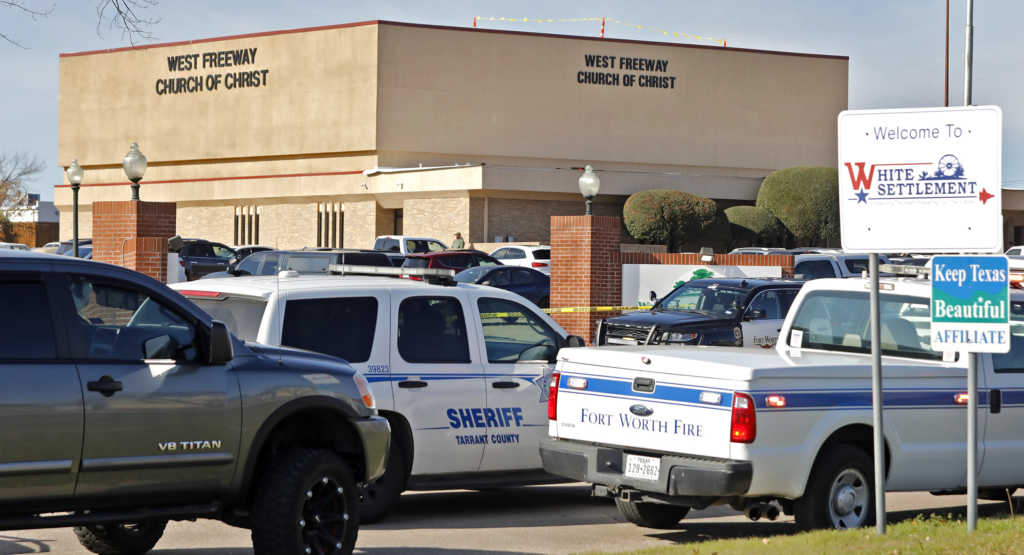What any congregation hopes will never happen to them — or anyone — unfolded one Sunday morning in late December at a church in Texas. Thankfully, one congregant was prepared for the attack.
Jack Wilson shot the gunman who opened fire at West Freeway Church of Christ in White Settlement. The attacker killed two other church-goers before being taken out by Wilson, who has been honored for his heroism.
As active shooters seem to be an increasing threat, just how ready are churches for potential attacks?
A new study from LifeWay Research shows around 80% of Protestant pastors have some sort of security measures in place during worship services.
“Churches are some of the most common gatherings in any community, and that makes them targets,” said Scott McConnell, executive director of LifeWay Research. “Most churches understand this and have responded in some way.”
What that looks like, though, varies based on the church and denomination.
Sixty-two percent of survey respondents said they have an “intentional plan,” should an active shooter situation unfold during a church function. For 45% of churches, the plan includes armed congregants like Wilson.
Evangelical pastors (54%) are more likely than mainline Protestant ministers (34%) to have armed members in their respective congregations. Similarly, Pentecostal (71%), Baptist (65%), and Church of Christ (53%) pastors are more likely to have armed congregants than are Methodist (32%), Lutheran (27%), and Presbyterian or Reformed (27%) ministers.
What else?
Pastors in the South (51%) and West (46%) are more likely to have armed church-goers than those who lead churches in the Northeast (33%).
For some congregations, having armed attendees just isn’t ideal. Instead, they have armed private security on-site (23%) or have a uniformed police presence on-site (6%). That presence makes most church-goers — 73% — feel safer. It should be noted, though, that 20% said they aren’t sure how it makes them feel and 8% admitted it makes them feel less safe.
Non-white church attendees, for example, are more likely than white congregants to say they feel less safe at church when they see security officers during worship services. Ten percent of non-white respondents said they feel less safe with uniformed police or private security guards, while 6% of white church-goers said the same.
Regardless of how it’s accomplished, maintaining plans for safety is critical.
“Any organization that has relatively large gatherings of people has a responsibility for the safety of those gathered,” said McConnell. “In considering security, church leaders have to consider methods, costs, risks and how those safety measures potentially impact their ministry.”



